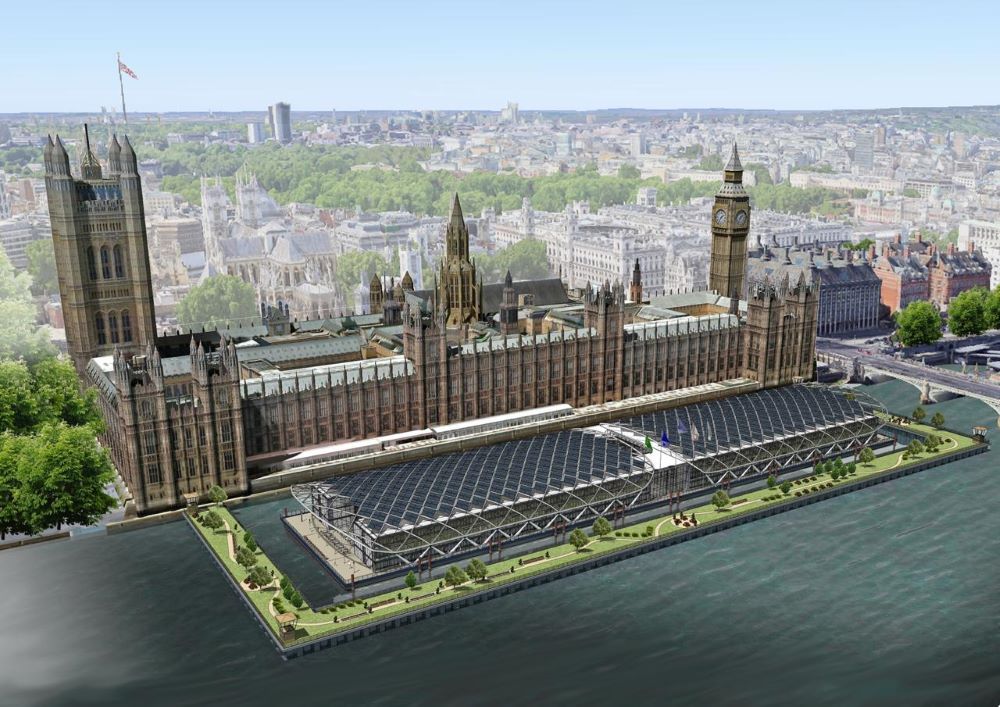Growing Frustration Within Team Restoring Parliament Over Slow Progress
4 min read
There is an increasing sense of frustration at the highest levels of the Restoration and Renewal (R&R) programme leadership, as the project faces yet further delays.
One member of the R&R Programme Board – which is responsible for making key strategic decisions on restoring the Palace of Westminster – told PoliticsHome there is “growing frustration” among colleagues at the pace of the programme.
Lay members of the R&R board – mostly representatives from the business world – are said to have felt particularly irritated by the slow rollout.
“It’s probably more the external people, because there are things that might make total business sense, but politically they're difficult to deliver for one reason or another,” the board member said.
They added that this irritation comes from deadlines that “seem to shift all the time” but always delay the project further: “Everything's moving all the time but not actually moving in the right direction, which is the frustration.”
MPs have so far failed to agree on what approach to take to restore the Palace of Westminster, despite repeated warnings about risks to the safety of people who work there.
There are currently three options tabled for Parliament’s restoration: a full decant from the Palace; a partial decant; and an ‘enhanced maintenance and improvement’ option, which would see MPs and peers remain on site while work continued around them.
The vote on which of the three options MPs prefer is thought to be scheduled for May, but insiders fear it will now not happen before the end of the year.
A spokesperson for UK Parliament said: “We remain on track to bring costed proposals to both Houses by the end of 2025 detailing costs, timescales, risks and benefits of the three delivery options.”
However, with roughly £2m being spent per week to maintain the parliamentary estate, delays are proving costly. The minutes of a Programme Board meeting in January reveal members noting the “financial implications of continuing work on all three options until a decision in the Houses”.
With more than half the total number of MPs elected last year, the board member said there is now a large new intake who “might have a different view” on matters the R&R boards had “thought were settled”, such as how to improve Parliament’s accessibility.
Proposals first introduced in 2022 have been put once more to MPs and peers involved with the programme this year.
One is ‘Waterside’ – the idea of a floating Parliament, which would be stationed alongside the terrace on the River Thames. The structure would be entirely modular, with room for both the Lords and Commons chambers, office space and dining areas.
Waterside’s planners say the structure could be built within 24 months. It is thought the government would pay £70m a year to lease Waterside for roughly 15 years.
“After Labour came in, we thought we want to try to present the proposals again,” Waterside’s project lead Svein Kjelstrup Olsen said.
“The only solution is a full decant of the Palace of Westminster to a bespoke designed secure building to enable the work to be carried out efficiently and safely. Waterside can provide that solution faster and more competitively than any other alternative.”
 The Waterside proposal
The Waterside proposal
This is not the first time proposals to move Parliament onto the Thames have been floated. In 2016, London-based firm Gensler unveiled plans for a glass building on a barge on the Thames. A proposal to rehouse MPs on three defunct Woolwich ferries followed two years later. The proposals were rejected over security and practicality concerns.
“It's innovative, it's novel, and it does answer quite a lot of the questions about alternative venues – particularly the security aspects,” Geoffrey Clifton-Brown, Conservative MP and former Programme Board member, said of Waterside.
However, he added that “there are downsides such as competing for space with barges removing debris from the project” and “the question of whether they provide value for money on the quoted leasing cost”.
A current board member said of the proposals: “From a security point of view, I don’t think MPs would feel very pleased with the idea of sitting in the middle of the water somewhere.”
